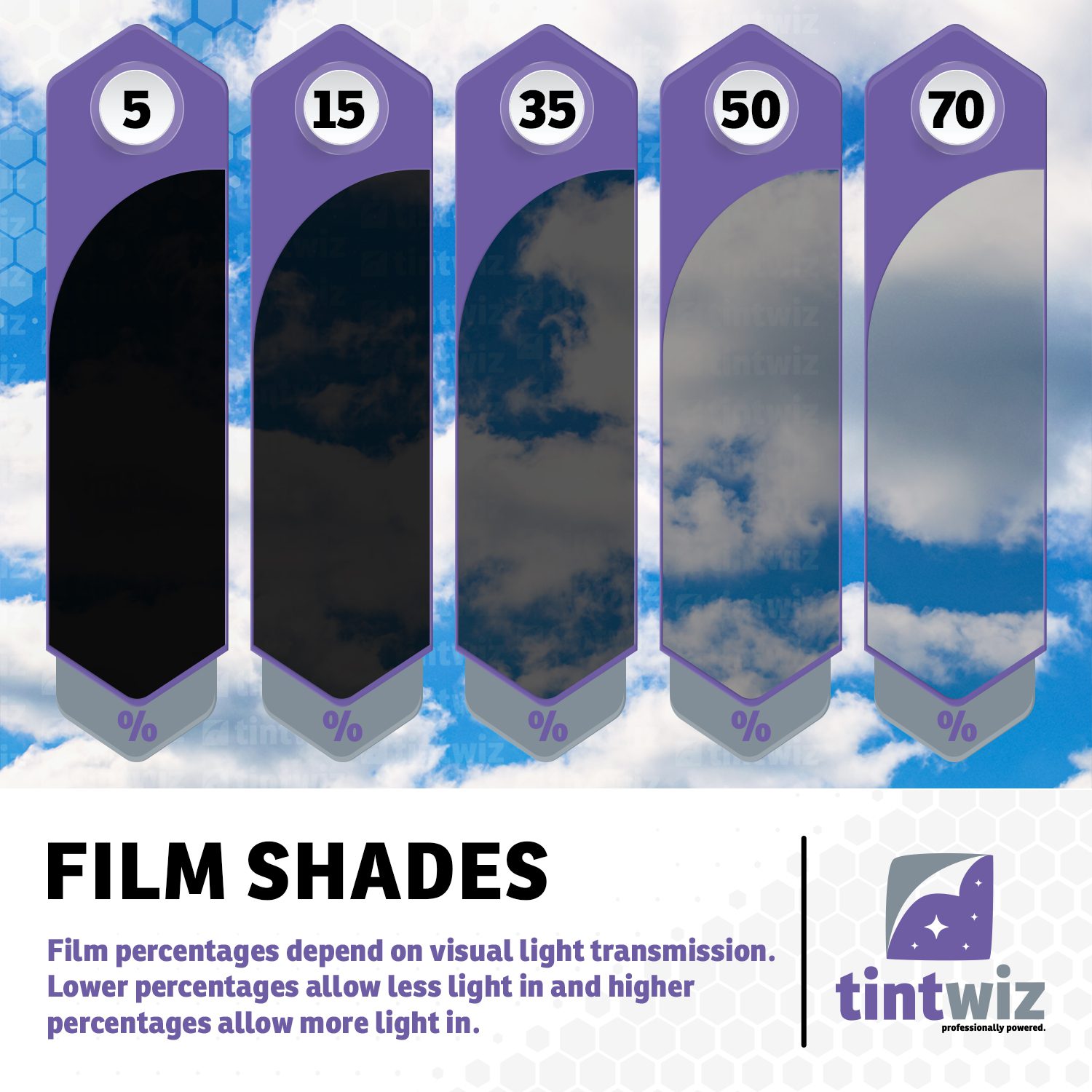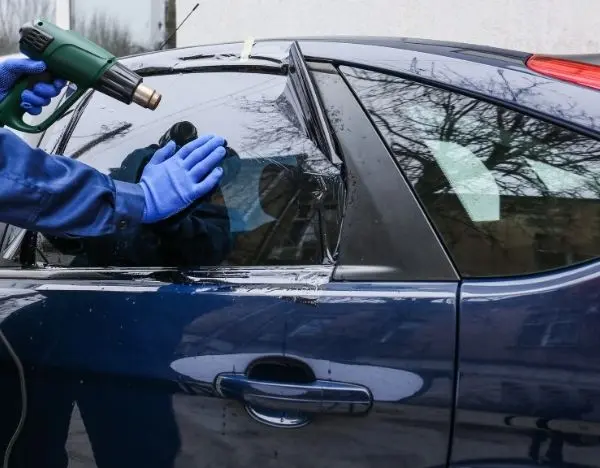As an Amazon Associate, I earn from qualifying purchases
A window tint ticket can cost anywhere from $25 to $275. The exact amount depends on your state and the severity of the violation.
Getting a window tint ticket is a common issue for many drivers. Window tint laws vary from state to state, and even a small difference can lead to a fine. Understanding these costs is essential to avoid unexpected expenses. This blog will explain the different factors that influence the cost of a window tint ticket.
We will help you understand why such tickets are issued and how you can avoid them. By knowing the rules and costs, you can make better decisions about your vehicle’s window tint. Let’s dive in and explore the details.
Introduction To Window Tint Laws
Understanding window tint laws is crucial for vehicle owners. These laws vary by state and country. They regulate how dark or reflective your car windows can be. Knowing these rules helps you avoid fines and keep your vehicle compliant.
Window tinting provides privacy and protects against UV rays. But, there are limits to how much tint you can apply. Authorities enforce these limits to ensure safety on the road.
Importance Of Compliance
Complying with window tint regulations is important for several reasons. First, it helps you avoid expensive fines. A window tint ticket can cost anywhere from $50 to $500, depending on the location and severity of the violation. Repeat offenses can lead to even higher fines.
Second, compliance ensures that your car meets safety standards. Excessively dark tints can reduce visibility, increasing the risk of accidents. Following the law helps you and other drivers stay safe.
Lastly, adhering to tint laws avoids unnecessary legal trouble. Non-compliant tinting can lead to vehicle inspection failures. This can result in additional costs and inconvenience.
Common Regulations
Most regions have specific rules for window tinting. These rules often include:
- Visible Light Transmission (VLT): This indicates the percentage of light that can pass through the window. For example, a 70% VLT means 70% of light passes through, and 30% is blocked.
- Windshield Tinting: In many places, only the top portion of the windshield can be tinted. This strip is usually around 4-6 inches in height.
- Front Side Windows: These windows often have stricter VLT requirements compared to rear windows.
- Reflective Tint: Some areas limit how reflective your tint can be. This rule helps reduce glare for other drivers.
Each state or country has its specifics. It’s best to check local laws to ensure your vehicle complies with all regulations.

Credit: tintwiz.com
Factors Influencing Ticket Costs
Understanding the cost of a window tint ticket can save you from unexpected expenses. Various factors influence the ticket cost. This section breaks down these factors to give you a clear picture.
Severity Of Violation
The severity of your window tint violation plays a significant role. Minor infractions may incur lower fines. Major infractions can lead to hefty penalties. For instance, having a tint that’s slightly darker than allowed might cost less. But if your tint is far from legal, expect higher fines.
Repeat offenders also face steeper penalties. The first offense might result in a warning or a lower fine. Subsequent offenses can increase the ticket cost significantly. Law enforcement officers consider the degree of violation. They assess whether the tint severely obstructs the view. The more severe the violation, the higher the cost.
State And Local Laws
Window tint regulations vary by state and locality. Each state sets its own rules on allowable tint levels. Some states have stricter laws, leading to higher fines. Others are more lenient, resulting in lower penalties.
For example, California has stringent window tint laws. Infractions in California can lead to higher fines. In contrast, states like Florida have more relaxed regulations. This can result in lower ticket costs. It is important to check your local laws. Knowing your state’s regulations can help you avoid costly fines.
Below is a table illustrating how fines may vary by state:
| State | First Offense Fine | Repeat Offense Fine |
|---|---|---|
| California | $200 | $400 |
| Florida | $100 | $200 |
| New York | $150 | $300 |
Understanding these factors can help you stay compliant. It can also help you budget for potential fines.
Typical Fines For Window Tint Violations
Fines for window tint violations typically range from $100 to $250, depending on state laws. Repeat offenders may face higher penalties.
Understanding the typical fines for window tint violations is crucial. Many drivers don’t realize the costs they might face. These fines can vary widely based on the location and severity. Some places have stricter rules than others.
First Offense Penalties
For a first offense, fines are often lower. They usually serve as a warning. The typical fine ranges from $25 to $100. Some states might only give a warning without a fine. This depends on the specific laws in that area.
Repeat Offense Consequences
Repeat offenses carry higher fines. They can range from $100 to $500. The fines increase with each violation. Some states may also add points to your driving record. This can lead to higher insurance rates. In severe cases, your vehicle registration could be suspended. Understanding these fines can help you avoid costly mistakes. Always check your local laws on window tinting.
Additional Costs And Consequences
Receiving a window tint ticket can be more than just a simple fine. There are hidden costs and consequences that many do not consider. These costs can add up quickly, making the ticket much more expensive than expected. Understanding these additional costs is crucial to avoid any surprises.
Court Fees
If you decide to contest the ticket, you may need to appear in court. This involves paying court fees, which can vary based on location. Below is an example of possible court fees:
| Type | Estimated Cost |
|---|---|
| Filing Fee | $50 – $100 |
| Attorney Fees | $200 – $500 |
| Administrative Fees | $20 – $50 |
These costs can quickly add up. Choosing to pay the ticket may sometimes be cheaper.
Insurance Implications
A window tint ticket can affect your car insurance rates. Insurance companies may view this as a sign of risky behavior. This can lead to higher premiums.
- First Offense: Premium increase of 5% to 10%
- Repeat Offense: Premium increase of 15% to 20%
These increases can last for several years. Over time, this can be very costly.
By understanding these additional costs and consequences, you can make better decisions. It’s important to weigh these factors before deciding to contest a ticket or pay the fine.
Ways To Avoid Window Tint Tickets
Getting a window tint ticket can be a real hassle. It can result in fines and the need to remove or adjust your tint. There are ways to avoid this inconvenience. By understanding the legal limits and ensuring proper installation, you can save yourself from trouble.
Understanding Legal Limits
Each state has its own window tint laws. Knowing these laws is crucial. Some states allow darker tints, while others have strict limits. It’s important to check the legal limits in your area. This information is often available on government websites. Being informed can help you avoid fines.
For example, many states measure tint by Visible Light Transmission (VLT) percentage. This is the amount of light that passes through your windows. A lower VLT means a darker tint. Make sure your tint falls within the allowed range. This will keep you on the right side of the law.
Professional Installation
A professional installer can ensure your tint meets legal standards. They have the experience and tools needed for precise work. This reduces the risk of non-compliance with tint laws. A professional job also looks better and lasts longer.
Choose a reputable installer with good reviews. Ask if they are familiar with your state’s tint laws. They should provide a certificate of compliance. This document can be useful if you are ever questioned by law enforcement.
By understanding legal limits and opting for professional installation, you can enjoy tinted windows without the worry of tickets. It’s a small effort that can save you money and stress in the long run.

Credit: traffichearinglawyer.com
How To Contest A Window Tint Ticket
Getting a window tint ticket can be frustrating. Luckily, you can contest it. Follow these steps to increase your chances of success.
Gathering Evidence
Start by gathering evidence to support your case. Take clear photos of your tinted windows. Make sure the photos show the tint’s compliance with legal limits. If the tint was installed by a professional, get a copy of the installation receipt. This can serve as proof that the tint meets state regulations.
Next, check the tint laws in your state. Laws vary by state, so knowing them is crucial. You can find this information on your state’s DMV website. Print a copy of the relevant laws to present in court.
Also, gather any related documents. This could include a doctor’s note if you have a medical exemption. Make sure all your evidence is well-organized and easy to present.
Legal Representation
Consider hiring an attorney. A lawyer can help you navigate the legal system. They know the laws and how to present your case effectively. If you can’t afford one, look for free legal aid services in your area.
Prepare for your court appearance. Dress appropriately and be respectful. Present your evidence clearly and concisely. Be ready to answer any questions the judge may have.
Remember, the goal is to show that your window tint is within legal limits. With strong evidence and proper representation, you have a better chance of contesting the ticket successfully.
State-specific Tint Laws
Understanding the cost of a window tint ticket starts with knowing state-specific tint laws. Different states have different regulations for how dark or reflective window tint can be. It’s important to be aware of these laws to avoid fines.
Variations Across States
Each state in the U.S. has its own rules for window tinting. These rules can differ greatly. Here’s a look at some of the variations:
| State | Front Side Windows | Back Side Windows | Rear Window |
|---|---|---|---|
| California | 70% VLT | Any | Any |
| Florida | 28% VLT | 15% VLT | 15% VLT |
| New York | 70% VLT | 70% VLT | 70% VLT |
| Texas | 25% VLT | 25% VLT | 25% VLT |
VLT stands for Visible Light Transmission. This percentage indicates how much light can pass through the window.
Resources For Checking Local Laws
To avoid fines, always check the local tint laws. Here are some resources to help you:
- Tinting-Laws.com: This site offers a state-by-state guide.
- DMV.org: Provides information on vehicle regulations.
- IWFA: The International Window Film Association has useful resources.
These resources ensure you stay within the legal limits. It’s better to be informed than to face fines.

Credit: smartfinancial.com
Benefits Of Legal Window Tint
Legal window tinting offers many benefits that can enhance your driving experience. Besides avoiding fines, it ensures your car remains compliant with state laws. The advantages of legal window tint go beyond just following the rules.
Uv Protection
Legal window tint blocks harmful UV rays. These rays can damage your skin and the car’s interior. By reducing UV exposure, you protect yourself and your passengers. Also, it keeps your car’s upholstery from fading.
Enhanced Privacy
Legal window tint provides better privacy. It prevents outsiders from easily seeing inside your car. This added privacy can make you feel more secure. It also deters thieves from targeting your vehicle.
Frequently Asked Questions
What Is The Average Cost Of A Window Tint Ticket?
The average cost of a window tint ticket ranges from $100 to $250. This varies by state and the level of tint.
Can I Contest A Window Tint Ticket?
Yes, you can contest a window tint ticket in court. Make sure to provide proof of compliance or an exemption.
Are There Additional Penalties For Repeat Offenses?
Yes, repeat offenses can lead to higher fines and possibly other penalties. Check your local laws for specific details.
Do Window Tint Laws Vary By State?
Yes, window tint laws vary significantly by state. It’s important to check your local regulations before tinting your windows.
Conclusion
Understanding window tint ticket costs can save you money and hassle. Fines vary by state, so check local laws. Some areas charge higher fines for repeat offenses. It’s crucial to comply with regulations to avoid penalties. Regularly inspect your tint to ensure it meets legal standards.
Being informed helps you make better decisions and stay on the right side of the law. Consider consulting a professional for advice if unsure. This small step can prevent costly fines and keep your vehicle compliant. Stay aware, stay compliant, and drive worry-free.
As an Amazon Associate, I earn from qualifying purchases


